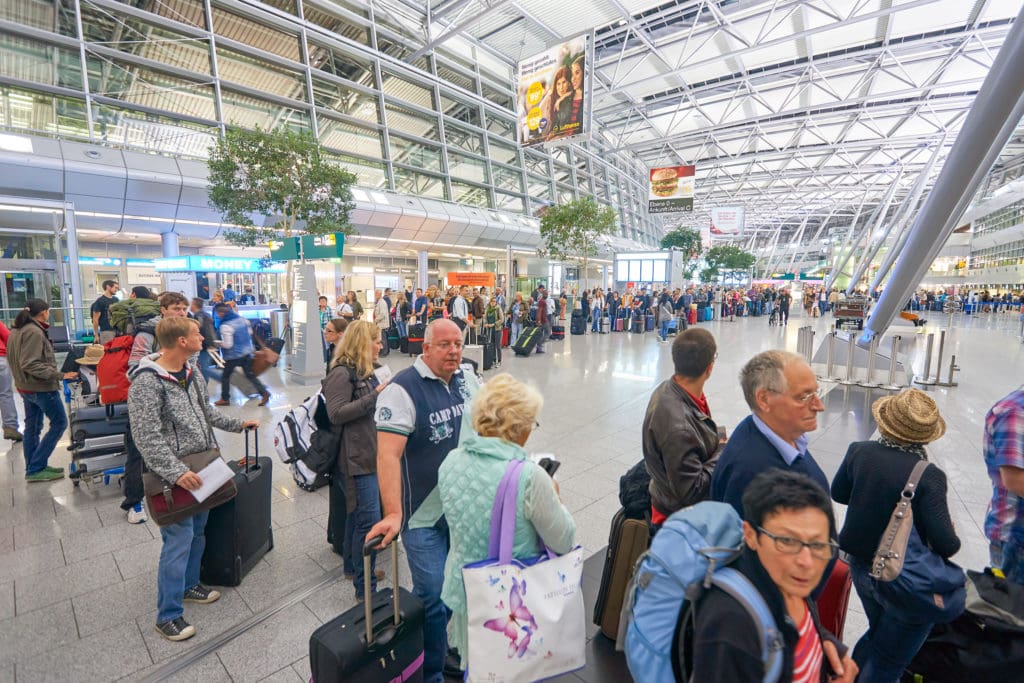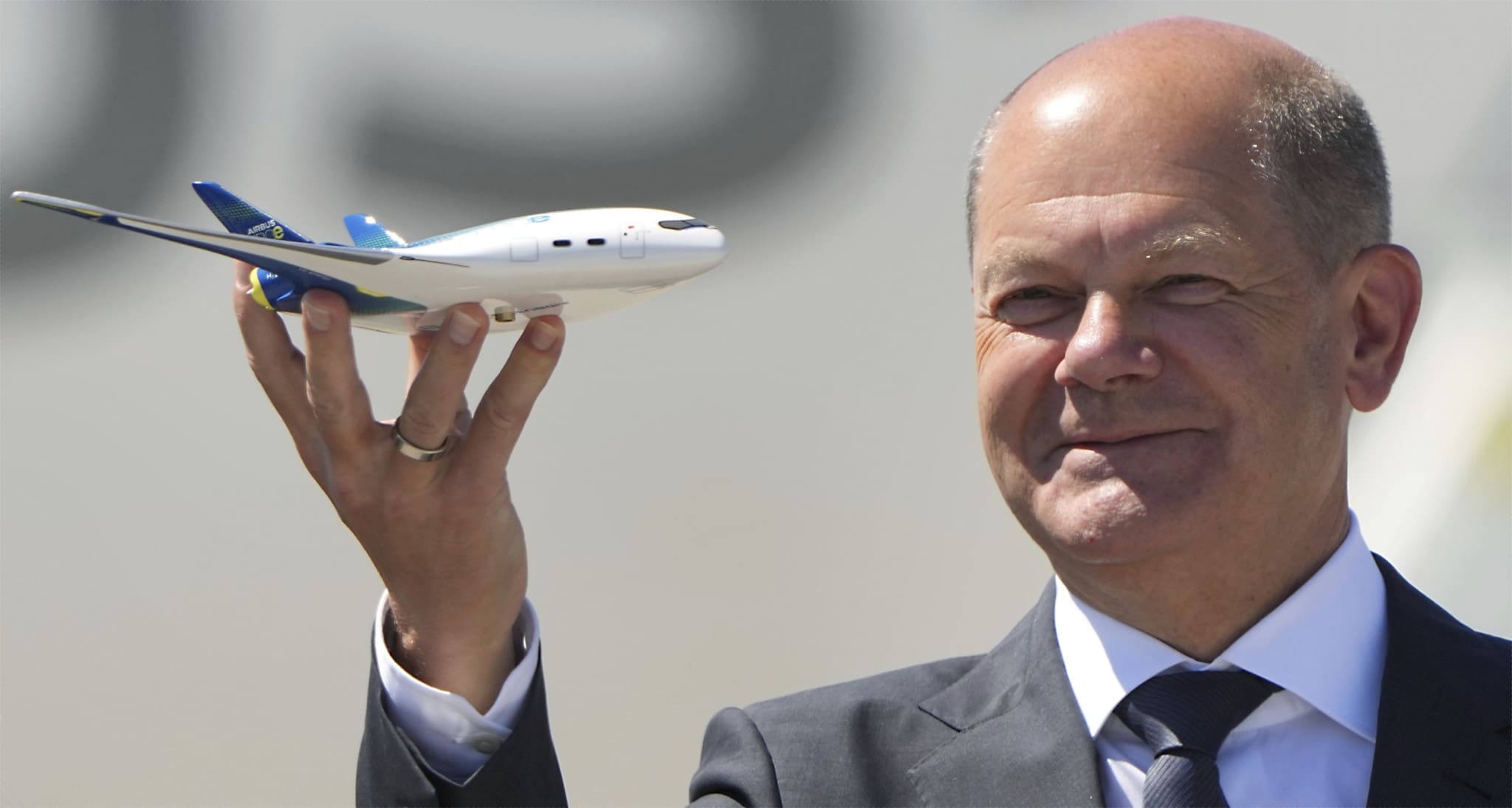Germany’s left-wing government plans to bring thousands of foreign workers from countries like Turkey in order to deal with travel chaos at a number of German airports, but critics of the proposal say local workers and migrants already in Germany should be used; they also point to potential security risks.
The situation at Germany’s airports remains tense, and according to Airport Association (ADV), there is a manpower shortage totaling 5,500 employees. Many of these employees, who worked in baggage-handling and other support positions, left during the pandemic and have no plans to come back.
The government is scrambling to deal with bottlenecks and delays that are piling up, especially as the summer holiday season fast approaches. Federal Transport Minister Volker Wissing told the Welt TV channel on Monday that a solution was within reach: “I hope that we can now get specialists from abroad with security clearances (…) here at short notice so that this very, very unsatisfactory situation for citizens can be resolved.”

German airports and their ground service providers want to employ thousands of foreign “guest workers” directly. The workers are to come from Turkey and some Balkan countries, among others, for a limited period of up to three months. Talks are currently underway within the federal government to clarify the prerequisites for this, according to Finanzen.net.
The plan is being described as similar to Germany’s decision to invite nearly a million Turkish guest workers following the Second World War. However, many of those “guest workers” never left the country. Furthermore, those migrants were invited at a time when Germany had virtually no non-European migrants in the country and following a catastrophic war that had severely reduced the working male population in Germany.
[pp id=18621[
Critics point to the fact that there are already hundreds of thousands of migrants in Germany who are not working and extracting billions in social benefits. As Remix News previously reported, there are 670,000 migrants who came during the 2015/16 migrant wave and are currently unemployed or looking for work; however, this only represents a fraction of the overall unemployment figures of migrants living in Germany. During the 2015/16 migrant crisis, German businesses hungry for cheap labor and the country’s left-wing political base promised a surge of young workers who would provide a needed boost to the country’s economy. Now, the government cannot even procure a few thousands from this massive pool of people to work in the country’s airports, highlighting the poor integration track record for many of the migrants who now reside in Germany.
The government’s recruitment plan is also facing criticism from the opposition Christian Democratic Union (CDU/CSU) and Alternative for Germany (AfD), which are both advocating for locals to be recruited. They cite not only the large pool of unemployed already in the country but also potential security issues.
“I don’t think the announcement of recruiting foreign skilled workers is expedient. That is activism and window dressing,” MP Andrea Lindholz (CSU) told the Handelsblatt. “Firstly, there is also a lack of workers abroad, and secondly, these workers first have to be recruited and trained.”
[pp id=9467]
The CDU/CSU parliamentary group has called for domestic workers to tackle the shortage of staff at German airports. They argue that the chaos that is currently prevailing can only be dealt with in the long term with local workers, said their spokesman for transport policy, Thomas Bareiß.
According to the chairman of the federal police union, Heiko Teggatz, it will no longer be possible to prevent chaos at the airports in the short term even if foreign workers are recruited. He also said that Federal Labor Minister Hubertus Heil (SPD), who helped initiate the plan, has nothing to do with ensuring internal security. He noted that security assistants need certification that meets the requirements of the EU directive, and there is a big open question whether foreign nationals from Turkey could meet these standards in the short or long term. According to him, aviation security is increasingly about fighting terrorism.
Given the sensitive security situation at airports, Germany’s left-wing government is making the case that all the workers can be both vetted and employed in time to alleviate the mounting pressure.
[pp id=38808]
With regard to the chaotic conditions at airports, Wissing spoke of an unsatisfactory situation. “People want to go on vacation, they’re happy to finally be able to travel again after such a long time. And that air travel isn’t working right now right now is frustrating travelers, so it annoys me too.”
The foreign workers would probably be employed directly by ground-handling service providers, said the general manager of the airport association ADV, Ralph Beisel, on Monday to the German Press Agency.
The federal government signaled its approval of the industry plan. However, a final decision in coordination with the ministries of Labour, the Interior and Transport is still pending. A spokesman for the Ministry of Labor said on Monday that talks within the government were still ongoing. Above all, it is about the waiver of the so-called priority check, whether domestic employees are not also available for the jobs.
However, it may still be a few weeks before the first workers recruited from abroad start working at German airports. The Federal Ministry of the Interior expects that they can still be used during the summer vacation period. The workers recruited at short notice could, for example, work in baggage handling, said the spokesman for the ministry, Maximilian Kall, on Monday in Berlin. “In the case of security checks, this is out of the question because of the training required there and the security standards that apply there,” he added.
The spokesman emphasized that anyone who works in baggage handling must also go through a security check. This review by the respective state authorities takes about two weeks. The aim of the federal government is to enable the additional workers to be deployed quickly “so that the companies can quickly compensate for this massive shortage of staff that they have at the airports after the coronavirus period.” This measure is also about creating relief for travelers “this summer.”
Over the weekend, there were again problems in the terminals of several airports at the start of the holiday season in the most populous state of North Rhine-Westphalia. Due to a lack of staff, there were long waiting times at the passenger controls, and a lot of luggage was initially left behind. In Düsseldorf, even the airport fire brigade had to help, as several media outlets reported.
The ADV had put the total requirement of the airports, including at check-in and air security checks, at around 5,500 workers for this summer. Shortly before the start of the main holiday season, numerous airlines had canceled flights. Lufthansa canceled a total of almost 3,000 flights at its Frankfurt and Munich hubs, also because more and more crews are calling in sick due to coronavirus. The low-cost subsidiary Eurowings also canceled hundreds of flights in July. At Berlin Airport alone, market leader easyJet cut its program for the summer months by around 1,000 flights.






